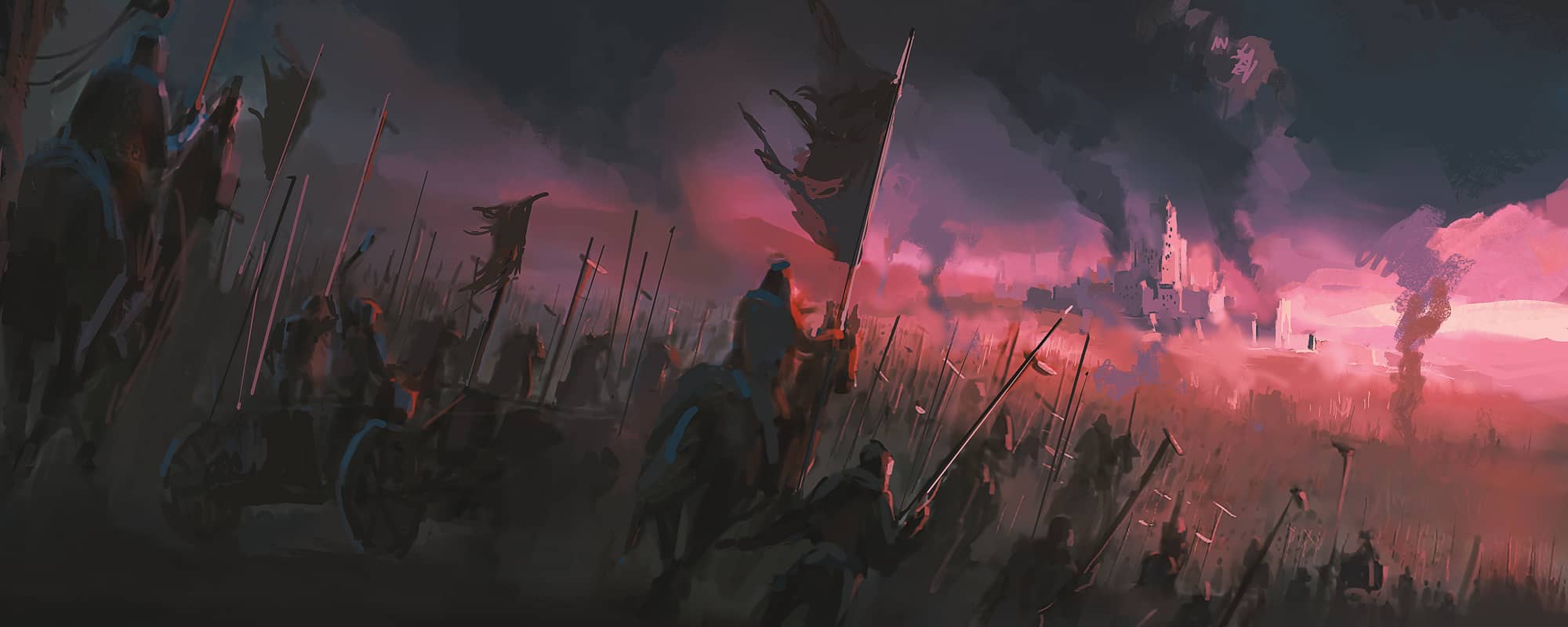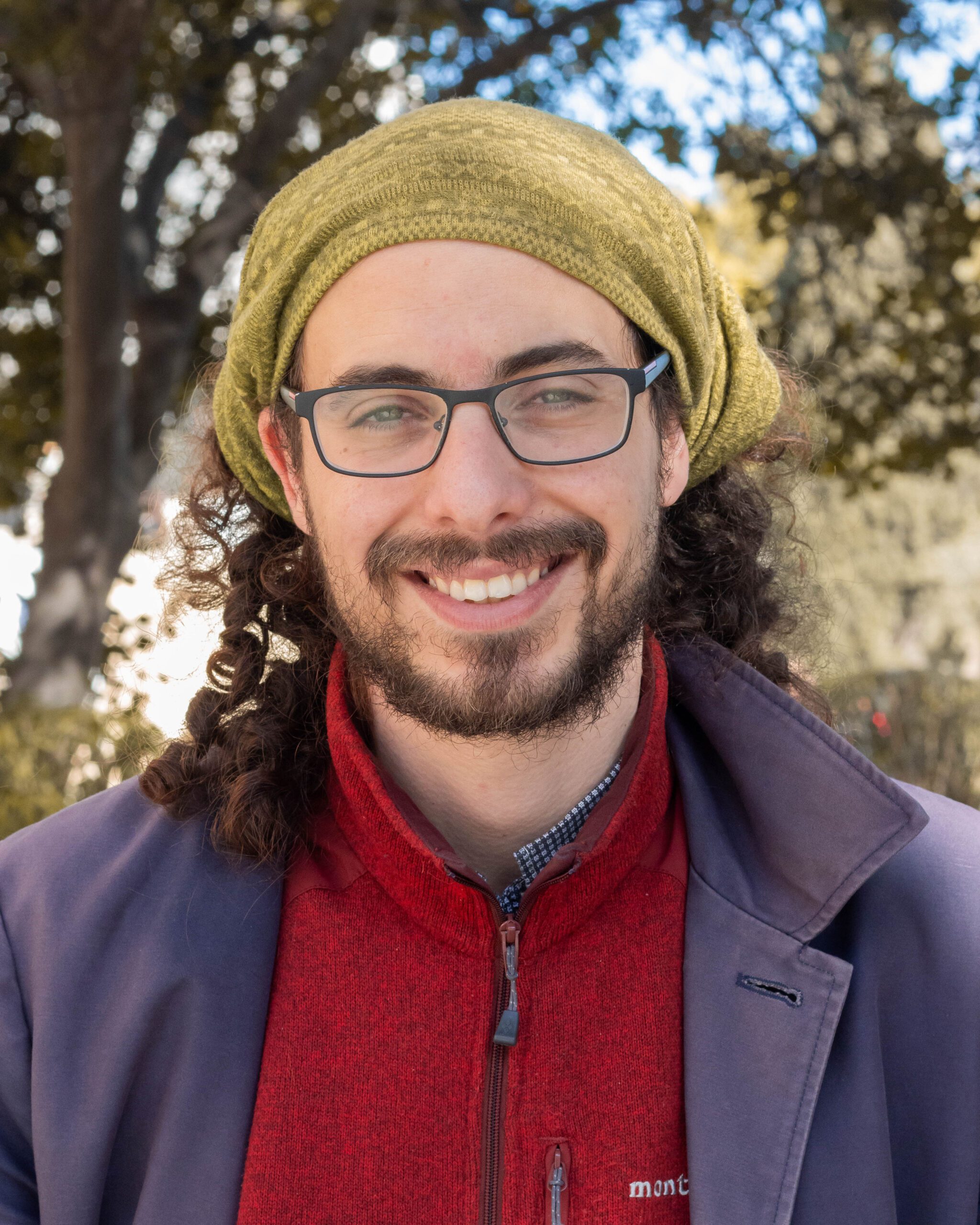War songs are designed to unite armies against a common enemy. David Mizzi talks to three academics to examine jihadist war poetry (including ISIS), ancient Hebrew war poetry, and Chinese/Korean war songs from WWII. They all share universal themes like land and unity and the rhetoric of revolution.
When we think about poetry, we might conjure images of soppy love sonnets or poems from our secondary school days. However, poetry (and literature in general) has tackled more destructive themes such as war and conflict. It has the power to shape political choices, inspire us to commit great (or terrible) acts, and give form to our identity.
For Dr Lehyla Heward (Department of Oriental Studies, University of Malta), this is evident in the war songs of Korean and Chinese insurgents during WWII. As we discussed the rousing tunes of these communist freedom fighters, similarities to other traditions, such as the jihadist war poetry used by ISIS as well as ancient Hebrew war poetry found in the War Scroll (a Dead Sea Scroll from Qumran) began to crop up. Dr Kurstin Gatt and Dr Dennis Mizzi (both from the Department of Oriental Studies) both shared their insights. What makes this particularly exciting is how these three traditions — separated by time and space and with virtually no communication with one another — developed poetic traditions with overlapping themes. It’s a testament to the universality of poetry and humans’ penchant for destruction and violence.
From East to West
The language we use reflects the way we think. Poetry’s messages can be decoded to understand the mindset (gestalt) of the groups who used them. So, what makes these three poetic traditions distinct?
Manchuria (a region in Northeastern China) is flanked by the Korean peninsula. Two rivers spring from the Changbai mountain and run east and west through the region, forming a natural border between China and Korea. In 1931, the Japanese staged a bombing as a pretense to invasion, alienating both the Chinese and Korean inhabitants and leading to a strong anti-Japanese sentiment. Heward explains how this was the catalyst that led them to join forces against a common enemy.
The war songs of the Northeast Anti-Japanese United Army (NAUA) offer us a glimpse into the ways Chinese and Korean fighters interacted and viewed one another. But while the songs were designed to unite these two factions, Heward explains how ‘we can clearly see cultural differences in the songs, for instance in the language. There are both Chinese and Korean versions of the same song.’


Heading towards the Middle East, Gatt’s dissertation project analyzes both jihadist language as well as their poetry. Specifically he takes a look at the poetry used by the Islamic State (IS). For jihadists, poetry is one of the most popular forms of media communication. It is used as both propaganda and recruitment. When we say poetry in jihadist literature, we refer to a structured poetry in Arabic, with a rigid end-rhyme, metre, and fixed themes.
Jumping back in time, Mizzi speaks about his preliminary insights into Hebrew war poetry, the eldest of the three poetic traditions. ‘One noteworthy text is the “War Scroll,” which was discovered among the Dead Sea Scrolls,’ he explains. This manuscript describes an escatological battle (a battle fought at the end of time) between the forces of good and evil, providing a scripted narrative about how this battle will unfold. It describes battle formations, weapons, armour, military banners, and much more in great detail, but the text also includes some war songs.
Scholars generally attribute the Dead Sea Scrolls to the Essenes, one of a number of Jewish groups (including the Pharisees, the Sadducees, and the early Christians) active during the 1st centuries BCE and CE. The final redaction of the War Scroll is dated to the 1st century BCE, though it is clear that the document is a composite text, made up of earlier texts. Mizzi explains how ancient scribes would literally copy and paste older sources. ‘It’s effectively plagiarism,’ he laughs. ‘We can tell because there is a major shift in the tone and style.’
That being said, while both jihadist war poetry and the war songs of the NAUA have been used in actual wars, there is no evidence that the War Scroll was ever used in an actual war setting, and the manner in which it was read remains a matter of speculation.
Us vs.Them
The first step to violence is to identify and dehumanize your enemy.
In the case of jihadist poetry, enemies are threatened (tawa’’ud) and ridiculed (hija’) in verse. Gatt gives a specific example through, ‘Soon, soon.’
We come to you with slaughter and death,
With fear and silence, we sever the bonds,
You have failed publicly, so taste the defeat,
Return in flight, under cover of night.
Taken from ‘Soon, Soon.’
The War Scroll distinguishes between the Sons of Light and the Sons of Darkness. The Essenes viewed themselves as being on the right side of history, believing themselves to be the Sons of Light, while the Sons of Darkness were deemed wicked and unclean. God will smite them.
Lay Thy hand on the neck of Thine enemies
And Thy feet [on the pile of the slain!
Smite the nations, Thine adversaries],
And devour flesh with Thy sword!
Fill Thy land with glory
And Thine inheritance with blessing!
Taken from ‘The War Scroll.’
In column XIII, the scroll discloses how the High Priest and the elders of the army shall bless the army and curse the enemy, who is aided by Belial, a demonic entity similar to Satan;
Cursed be Belial for his sinful purpose and may he be execrated for his wicked rule! Cursed be all the spirits of his company for their ungodly purpose and may they be execrated for all their service of uncleanness!
Truly they are the company of Darkness, but the company of God is one of [eternal] Light.
Taken from ‘The War Scroll.’
Just like in jihadist and Hebrew poetry, the songs of the NAUA unite soldiers against a common enemy. Unique to the NAUA is the challenge of overcoming the cultural and linguistic differences between Chinese and Korean soldiers. In order to instill a sense of camaraderie, war songs referred to the natural landscape of Manchuria. While the river might seem to divide the country, they too come together. The aptly named, ‘China and Korea Have come together’ goes:
The mountain streams and rivers of the countries,
China and Chosŏn, have come together.
History has been raised like a building
On the two plots of the Amnok River and Changbai Mountain.
Taken from ‘China and Korea have come together.’
‘Essentially,’ Heward explains, ‘it emphasises that if the land can be thought of as one, then so can the people who live there. It engendered a dual Chinese-Korean community.’
Regardless of what is shown in movies, killing another human being is psychologically challenging. This kind of poetry dehumanises the enemy, viewing them as the servants of darkness, an invader, or an affront to your way of life. By depicting the enemy as something evil or subhuman, poetry can ‘trick’ us into viewing the enemy as something rather than someone, which enables the committing of violence and atrocities.
A cause greater than the individual
It takes a powerful tool to convince people to lay down their lives for a cause. On the battlefield, where death is a constant and imminent possibility, poetry serves to reassure the combatants and prevent the fear of death from routing them.
According to Gatt, ‘poetry changes reality by manipulating jihadists into performing ‘martyrdom’ for the group with the illusion of a paradisiacal promise.’ While blood vengeance is a pre-Islamic concept, in fact the Qur’an aimed to overcome violence by introducing the belief in the afterlife. Meanwhile, jihadist war poetry perverts this message. It makes the quest for vengeance seem legitimate and part of the Islamic tradition. Die for the cause and enjoy eternal paradise.
Similarly, the War Scroll evokes biblical traditions to legitimise its position. By recalling past divine interventions in history, it aimed to instil confidence in the army of the eschatological war and strengthen their resolve. In column XI, the text refers to how God delivered Goliath of Gath into the hands of David, leading to triumph over the Philistines. It also highlights how the Sons of Light are chosen by God himself. ‘[…] Thy people Israel, which Thou hast chosen for Thyself’ This could be seen as reassuring to the soldiers as, besides being chosen by God, they have heard the ‘voice of Majesty’, and wisdom has been revealed to them.
Who is like Thy people Israel
Which Thou hast chosen for Thyself
From all the peoples of the lands;
The people of the saints of the Covenant,
Instructed in the laws
And learned in wisdom…
Who have heard the voice of Majesty
And have seen the Angels of Holiness,
Whose ear has been unstopped,
And who have heard profound things?
Taken from ‘The War Scroll’
For its actual readers outside the constructed world of the text, the scroll may have served as an ideological tool strengthening the resolve of what was essentially a minority group and justifying its ambivalent attitude towards outsiders. Who knows, perhaps when war broke out with Rome in 66 CE, some Essenes took the War Scroll to heart and joined the war effort, presuming it to be the onset of the eschatological war.
While the other traditions appeal to God to provide reassurance, the NAUA referred to another military favourite — patriotism. In ‘Four Seasons of Guerilla Warfare’, the song ends with the question, ‘Patriotic men don’t fear death, so how could they fear affliction?’ Heward explains this as the ‘logic of suffering’. They present two unwelcome circumstances, such as death and affliction, to show how one is better than the other — so long as the enemy is defeated, of course. What does it matter if one suffers frostbite while fighting the Japanese? It is still better than living under an oppressive regime.
These three traditions developed independently, yet they use the same techniques to inspire communities to war. Each group attempts to dehumanise their enemy while legitimising their own cause. They romanticise the atrocities of war behind promises of glory in an attempt to unite people under their banner. While the circumstances of each war may change, the destructive trail they leave behind is always a tragedy. It seems that even poetry is not safe from the horrors of war.
Extracts of the War Scroll are taken from Geza Vermes’ The Complete Dead Sea Scrolls in English. NAUA war songs used are translated by Dr Lehyla Heward. Extracts of jihadist poetry are taken from Dr Kurstin Gatt’s book ‘Decoding DᾹʿISH,’ which is available Open Access.






Comments are closed for this article!